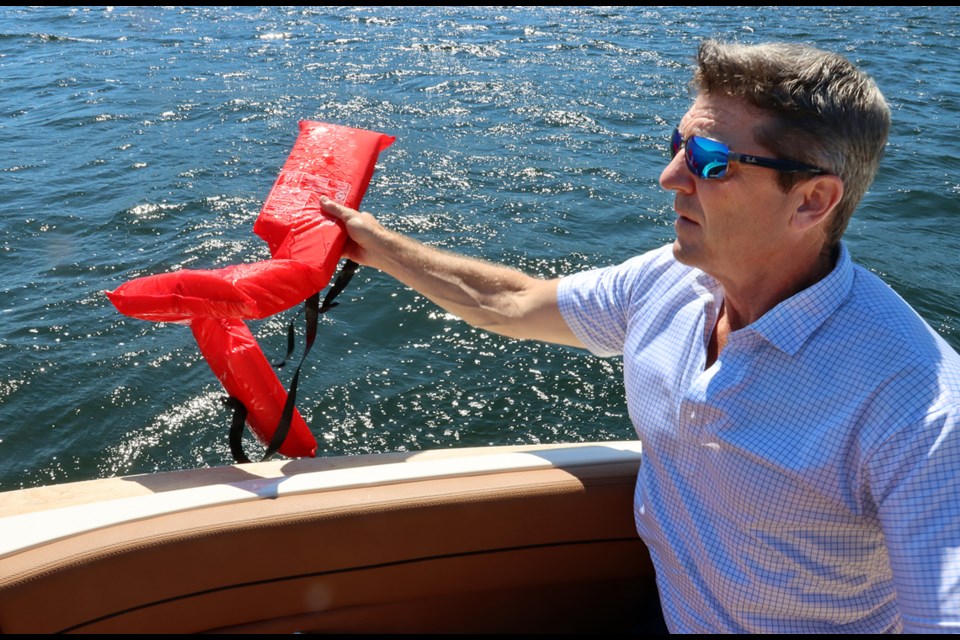A group of citizen volunteers is trying to bring some order to the busy waters of the Burrard Inlet’s Port Moody arm.
Patrick Dennett, of the Alderside Residents Committee, said the chaos on the water that recently ensued when a pod of Orcas swam in to hunt for seals over the BC Day holiday weekend highlights the need for education and enforcement of marine rules and decorum.
He said with more recreational users on the water — in boats, personal watercraft, paddleboards and kayaks — not everyone is knowledgeable about how to behave in the vicinity of other craft or wildlife, such as giving whales a 400-metre berth.
Even people who access the inlet from shore might not be aware of things like shellfish contamination or the hazards of cutting across the tidal mudflats at the inlet’s eastern end.
“It’s getting more and more popular,” Dennett said of the Inlet. “It’s a bit like the wild, wild West.”
Ryan Sayer, whose family has lived on Port Moody’s North Shore for 60 years, said waterfront residents have always felt a sense of stewardship for the water and shoreline.
“It’s part of the deal living here.”
He said getting together a formal group could spark more coordinated efforts for initiatives like education programs, lobbying authorities to step up enforcement and even environmental initiatives such as monitoring the comings and goings of wildlife like Orcas and seals along with beach cleanups to protect their habitat.
For Daphne Herberts, who lives close to Old Orchard Park, the greatest concern is people wandering carelessly onto the nearby mudflats that are exposed when the tide is out.
She said some don’t heed the warning signs posted along the shoreline while others are just oblivious to the potential danger of getting stuck in the viscous muck.
“It’s like a sport to them,” she said.
Dennett said among the activities the volunteers keep an eye out for are:
- capsized canoes, kayaks, sculls and paddleboards
- marine animals in distress
- violations of fishery regulations, including illegal harvesting of shellfish, overfishing of crabs, and fishing in closed area
- grounded boats
- unsafe boating practices such as paddleboarders and kayakers wandering into shipping lanes
Members of the group also help maintain the sea pen where local hatcheries acclimatize their fry before releasing them into the wild, as well as clean up garbage and debris left on the water by boaters.
Dennett said volunteers try to educate visitors to the inlet as best they can, but they will also report violations to the appropriate authorities like the Department of Fisheries and Oceans, police, the Coast Guard, harbour patrol and even Vancouver Aquarium’s mammal rescue team.
But the reality, he added, is most of those groups don’t have sufficient resources to always respond.
“We want to be proactive,” Dennett said, adding the group has also reached out to residents along the shores of Indian Arm to extend the citizen watchdog effort along its shores as well.
Sayer said more signs posted at places like the boat launch in Rocky Point Park about the rules of the water, as well as contact information for various authorities, would go a long way to educate visitors and promote accountability for behaviours.
“We as individuals can do something about it, or we can leave it to run amok,” he said.



